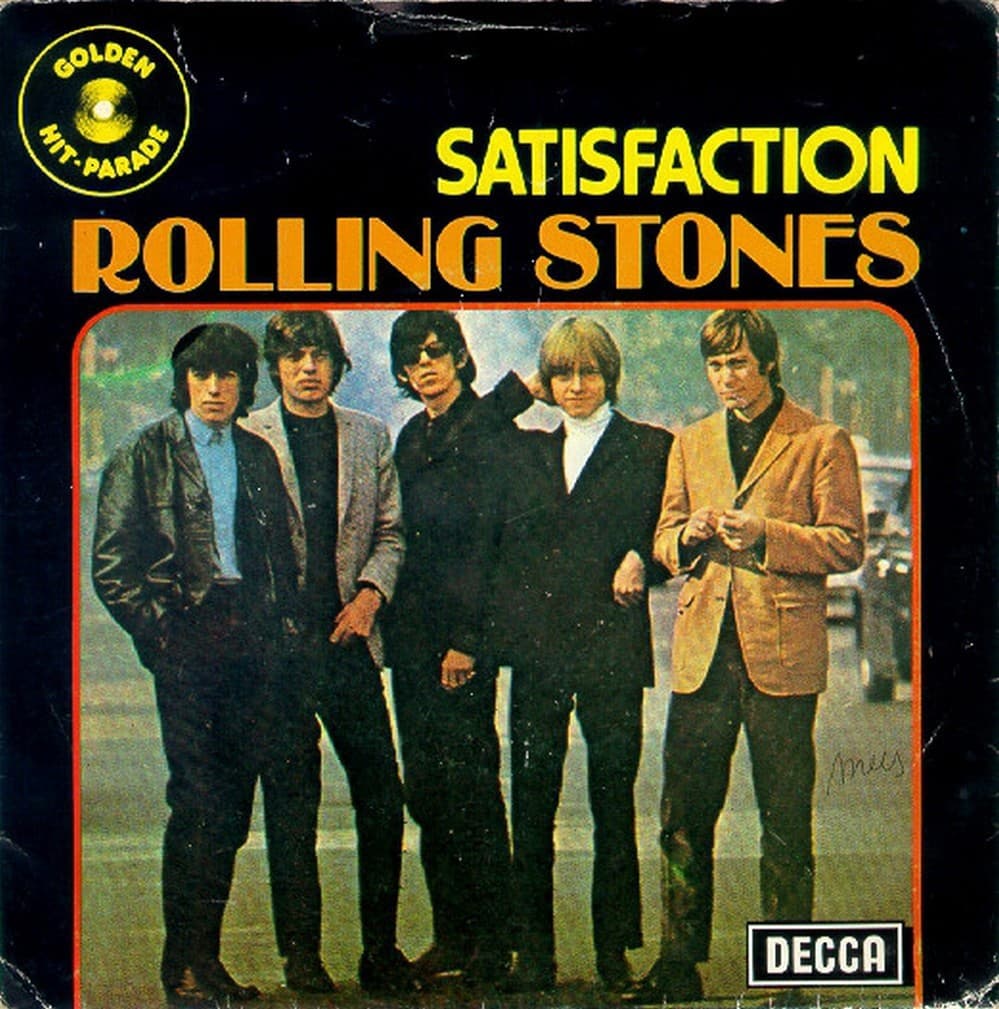
The Anthem of Rebellion and Desire
“(I Can’t Get No) Satisfaction” by The Rolling Stones is not just a song—it’s a seismic moment in rock history, a defiant proclamation of frustration and desire that captured the restless spirit of a generation. Released in June 1965, the track became the Stones’ first number-one hit in the United States and their fourth in the United Kingdom, solidifying their status as rock and roll’s provocateurs.
At the heart of the song lies Keith Richards’ unforgettable guitar riff, a raw, fuzz-drenched hook that pulsates with urgency and attitude. Richards reportedly conceived the riff in a dream, recording it on a cassette in the middle of the night. That simple yet potent phrase—three notes repeated with a hypnotic insistence—became one of rock’s most iconic motifs, setting the tone for the track’s rebellious edge.
Mick Jagger’s vocal performance brims with defiance, as he delivers lyrics that are both personal and universal. Lines like “When I’m drivin’ in my car, and the man comes on the radio / He’s telling me more and more about some useless information” capture a discontent with the barrage of commercialism, while the refrain “I can’t get no satisfaction” resonates with primal frustration. Beneath the swagger, the song hints at deeper anxieties—sexual, social, and existential—that mirrored the countercultural awakening of the 1960s.
Initially, the track stirred controversy. The provocative lyrics were deemed too suggestive for some radio stations, particularly in the UK, where it was initially relegated to pirate broadcasts. But this only added to its allure, turning it into an anthem of rebellion. Its raw, unpolished sound was a deliberate departure from the polished pop of the era, signaling the arrival of a grittier, more subversive rock ethos.
Commercially, “Satisfaction” was a juggernaut. In the United States, it topped the Billboard Hot 100 for four weeks, becoming one of the defining songs of the year. In the UK, where it faced initial resistance, it eventually ascended to number one, cementing the Stones’ reputation as both hitmakers and cultural provocateurs.
Critically, the song has earned its place in history. Rolling Stone magazine consistently ranks it among the greatest songs of all time, placing it at number two on their 2004 and 2010 lists. Its blend of raw emotion, indelible melody, and cultural impact make it a touchstone for generations of musicians and fans.
Beyond its accolades, “(I Can’t Get No) Satisfaction” encapsulates the Rolling Stones’ ethos: unfiltered, unapologetic, and fiercely authentic. It captured the zeitgeist of the 1960s, voicing the frustrations and aspirations of a youth eager to challenge convention and carve out its own identity. Decades later, its riff still ignites a visceral reaction, and its message of yearning and resistance remains as powerful as ever—a timeless testament to rock and roll’s enduring power.